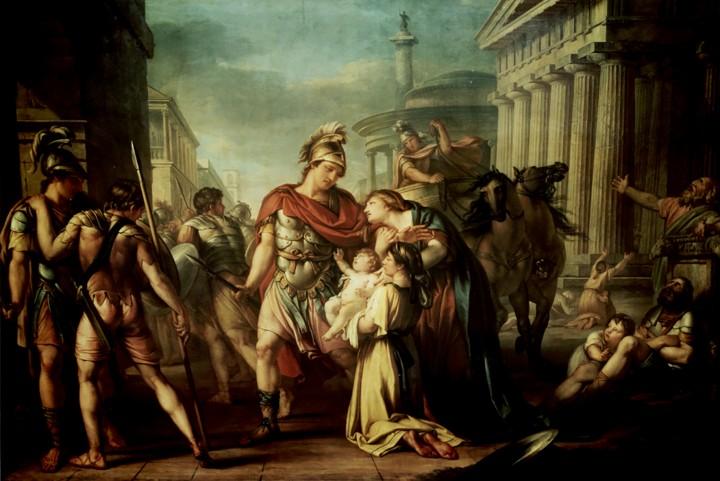In Homer’s poem “The Iliad,” the Trojan hero Hector and the Greek hero Achilles are destined for a showdown from the very beginning.
The poem marches with unwavering steps toward this inevitable conclusion, like the marching ranks of Trojan and Greek soldiers on the blazing plain before Troy. The coming duel between the greatest warriors on each side remains ever-present throughout the seemingly endless struggle of the armies on the beaches before the city, caught between the “hallowed heights of Troy” and the “fish-filled seas,” suspended between human civilization and the wild unknown of the afterworld.






